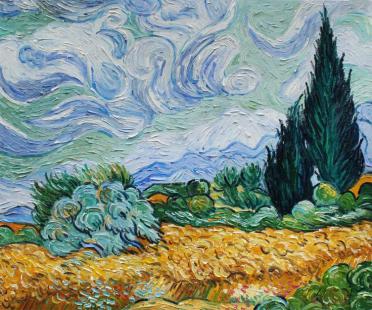Every week, parshaoftheweek.com brings you a rich selection of material on parshat hashavua, the weekly portion traditionally read in synagogues all over the world. Using both classic and contemporary material, we take a look at these portions in a fresh way, relating them to both ancient Jewish concerns as well as cutting-edge modern issues and topics. We also bring you material on the Jewish holidays, as well as insights into life cycle rituals and events...
This morning, after shacharit, while walking to the makolet to pick up challot for Shabbat, I saw a mother cat lying on the side of the path surrounded by four or five really small, newborn kittens. As I approached, she stirred herself, and the tiny kittens quickly and nervously scattered. Instinct. Nature.
This week’s parsha, Ha’azinu, contains a beautiful, difficult, poem - difficult in style, and in content; it is largely a pessimistic look at the past and future of the people of Israel. It begins with Moshe exhorting the heavens and earth to listen to his words, to act, as it were, as witnesses. This is not the only time that Moshe calls on the heaven and earth to play this role. The Rabbis see this evocation of the heaven and earth as a lesson to Israel: you, who will be rewarded or punished according to your actions, often do not heed my words, the word of God. On the other hand, heaven and earth, who have no reason to listen or obey, as they are not subject to reward and punishment, do exactly what God tells them to; the rain falls, the winds blow, the crops grow, all without fear of punishment or hope of reward. Why can’t you be more like them?
Now, one might question this parable by pointing out that heaven and earth have no will, no consciousness, they simply do what they do because of the laws of nature. They are neither obeying nor disobeying God, they just are doing what they do, just being what they are.
Perhaps that is the lesson Moshe wants us to learn from the smooth functioning of heaven and earth, of the natural world: we should try to serve God, to do His will, naturally, as an expression of who we are, rather than as the result of agonized thought and effort. Now, I am not here to denigrate the importance of thinking, and working, and trying hard to get our Judaism, and our lives, right. I am, however, arguing for an aspect of our religiosity, of our Jewish identities and activities, which I fear we all too often lose in our efforts to try, often much too hard, to get it exactly right, as right as it possibly could be, at least as right as the next guy. The Judaism of this constant search for a purer, harsher, more authentic religious identity all too often takes us away from the truly authentic, from that which flows naturally, easily, healthily, instinctually, like the obedience of heaven and earth to God’s will.
Rav Avraham Yitzchak Kook famously spoke of the importance of natural morality, a morality not of rules, texts, and organized religiosity, but of feelings, sensitivity, and common sense - an internal sense of right and wrong. Moshe, by calling our attention to the natural obedience of the forces of nature to God’s will, is encouraging us to develop within ourselves just such a natural goodness, a natural obedience, a healthy morality and ethos with which to obey God. Our turning from evil, from anger, from hate, from oppression, from falsehood, from meanness of spirit, should not be the result of some religious edict or mandated practice; it should be as natural to us as it is for new born kittens to run away from danger.
Shabbat Shalom,
Shimon



Get inspired by Haazinu Divrei Torah from previous years